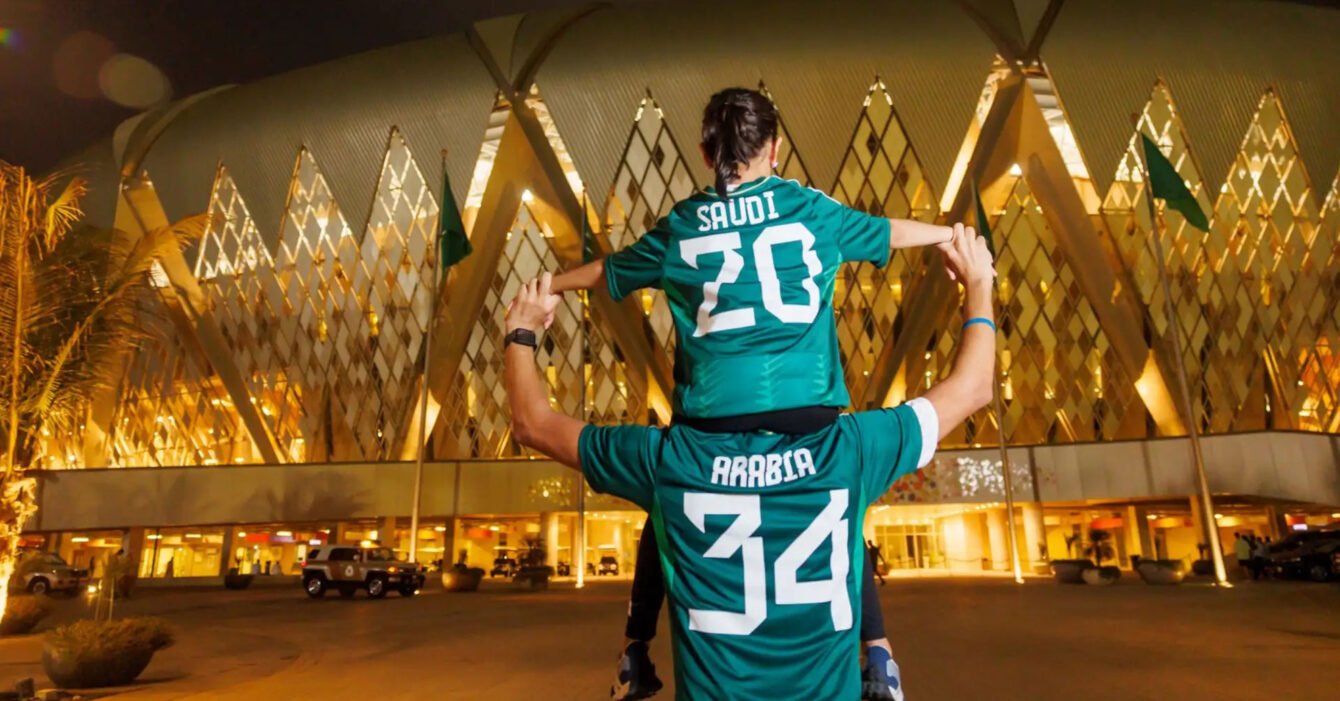Saudi Arabia has officially secured the 2034 FIFA World Cup, marking a historic milestone in its ambitious sports development strategy. The Kingdom’s successful bid aligns with Vision 2030, a transformative initiative aimed at diversifying its economy and positioning itself as a global sports hub. Hosting the FIFA World Cup 2034 presents immense opportunities, from boosting the economy and tourism to enhancing the nation’s football infrastructure. However, it also brings challenges, including logistical preparations, regulatory adjustments, and environmental sustainability concerns.
Saudi Arabia’s Growing Influence in Global Football
Saudi Arabia has rapidly emerged as a key player in international football. The country’s influence has grown through substantial investments in domestic leagues, high-profile player acquisitions, and strategic sponsorships. The Saudi Pro League (SPL) has attracted global superstars such as Cristiano Ronaldo, Neymar, and Karim Benzema, signaling the Kingdom’s commitment to football development. Additionally, Saudi Arabia has hosted major sporting events, including the Supercoppa Italiana and the Spanish Super Cup, further solidifying its reputation as a sporting powerhouse.
Key Investments Driving Football Growth in Saudi Arabia
Expansion of the Saudi Pro League: Significant funding has been allocated to attract world-class talent and elevate the league’s competitiveness.
Development of Football Academies: Saudi Arabia is investing in youth training programs to develop homegrown talent and ensure a strong national team.
Infrastructure Upgrades: The Kingdom is building state-of-the-art stadiums, training centers, and sports complexes in preparation for the 2034 FIFA World Cup.
Economic and Tourism Opportunities
Hosting the FIFA World Cup 2034 presents a unique opportunity to drive economic growth and boost tourism in Saudi Arabia. The event is expected to generate billions of dollars in revenue, creating new job opportunities across various sectors.
Projected Economic Impact
Increased Foreign Investments: The World Cup will attract global investors seeking to capitalize on Saudi Arabia’s expanding sports sector.
Growth in Tourism Industry: Millions of fans from around the world will visit the Kingdom, boosting revenue for hotels, airlines, restaurants, and local businesses.
Job Creation: The tournament will generate thousands of jobs in construction, hospitality, and event management.
Saudi Arabia as a Tourist Destination
Saudi Arabia has been actively promoting tourism under Vision 2030, with initiatives such as NEOM, The Red Sea Project, and AlUla. The World Cup will further showcase the country’s cultural heritage, natural landscapes, and modern attractions, reinforcing its appeal as a travel destination.
Infrastructure Development and Logistics
To successfully host the 2034 FIFA World Cup, Saudi Arabia must invest in large-scale infrastructure projects, ensuring world-class stadiums, transportation networks, and accommodation facilities.
Stadium and Venue Construction
Saudi Arabia has already begun developing new stadiums and upgrading existing ones to meet FIFA’s hosting requirements. Key projects include:
King Salman Stadium (Riyadh) – Expected to be a flagship venue for the World Cup.
NEOM Sports Complex – A futuristic sports city designed to host international events.
Jeddah and Dammam Stadiums – Upgrades to accommodate increased capacity and advanced facilities.
Transportation and Connectivity Enhancements
Saudi Arabia will need to enhance its transportation network to facilitate the movement of millions of visitors. Planned improvements include:
Expansion of High-Speed Rail Services: The Haramain High-Speed Railway will connect key cities, reducing travel times for fans.
Airport Upgrades: Enhancements at King Khalid International Airport (Riyadh), King Abdulaziz International Airport (Jeddah), and King Fahd International Airport (Dammam) to handle increased air traffic.
Smart Mobility Solutions: Integration of autonomous public transport systems and ride-sharing technologies.
Sustainability and Environmental Concerns
A critical challenge in hosting the FIFA World Cup 2034 is ensuring environmental sustainability. Saudi Arabia has pledged to implement eco-friendly measures to minimize the tournament’s carbon footprint.
Key Sustainability Initiatives
Green Stadiums: Incorporating renewable energy sources such as solar panels and energy-efficient cooling systems.
Water Conservation: Implementing advanced water recycling technologies to reduce wastage.
Carbon Offset Programs: Investing in afforestation projects and carbon-neutral initiatives to counterbalance emissions.
Saudi Arabia’s commitment to sustainability aligns with its broader environmental goals under Vision 2030, including the Saudi Green Initiative, which aims to reduce carbon emissions and enhance green spaces.
Challenges and Potential Risks
While the opportunities are vast, Saudi Arabia faces significant challenges in delivering a successful FIFA World Cup 2034.
Key Challenges
Meeting FIFA’s Infrastructure Standards: Ensuring all venues, transport, and hospitality meet international requirements.
Managing Climate Conditions: Adapting to the country’s extreme temperatures through innovative cooling technologies in stadiums.
Regulatory Adjustments: Implementing policies that accommodate international visitors, including visa reforms and alcohol regulations.
Public Perception and Media Scrutiny: Addressing concerns related to human rights, labor policies, and inclusivity to ensure a positive global reception.
The 2034 FIFA World Cup represents a transformative moment for Saudi Arabia, solidifying its place as a global sporting powerhouse. The Kingdom has already made significant strides in football development, infrastructure expansion, and tourism growth, aligning with its Vision 2030 goals. However, to ensure a successful tournament, Saudi Arabia must overcome logistical, environmental, and regulatory challenges.
As preparations continue, the world will closely watch Saudi Arabia’s journey toward hosting one of the most prestigious sporting events in history. With strategic investments, sustainable initiatives, and global collaboration, the FIFA World Cup 2034 could mark a new era for Saudi sports and its international reputation.

